|
Did you know that stress can trigger acne and make it harder to get rid of it? Or that oily skin is more prone to blackheads? It’s true! The unfortunate thing about acne is that no one is immune to it. Almost everyone experiences breakouts from time to time, regardless of their age or gender. There are many factors that lead to the development of acne and blackheads, including genetics, diet, stress, not drinking enough water, and using the wrong products on your skin...For this reason, I thought it would be helpful to share some tips with you on how to get rid of acne fast and prevent new pimples from forming again. These natural remedies will not only help you heal quicker but also keep your skin clean and healthy for a long time.
Change your diet There are many foods that can affect your skin, including your diet. Eating a healthy, balanced diet rich in vitamins, minerals, and fibre can help your body fight acne and acne scars caused by hormones. Some foods that are great for acne-prone skin are green tea, oranges, broccoli, sweet potatoes, almonds, turmeric, and carrots. Stay away from greasy foods and dairy products as they can make your skin produce more oil and make acne worse. Also, make sure you hydrate your body while hydrating your skin. Drinking a lot of water is crucial for healthy skin, hair, and nails. It helps flush out toxins from your body that can cause acne and other skin issues. The recommended amount is about 2 liters per day. Cleanse with a gentle face wash For best results, you should clean your face twice a day with a mild face wash. Use a cleanser with salicylic acid as it is a great acne fighter. It can unclog your pores and help keep them clean and free from bacteria that causes acne. It’s recommended that you avoid abrasive products that can irritate your skin. Instead, look for a non-foaming or low-foaming cleanser that is pH-balanced and doesn’t contain alcohol. If you have sensitive skin, try an alcohol-free and fragrance-free cleanser without any added exfoliating ingredients. Use a hydrating mask and Vitamin C serum If your skin is looking dry or irritated, use a hydrating mask a few times a week to soothe your skin. There are many affordable options out there that come in a variety of scents and textures. Find one that suits your skin type and leaves it feeling soft, smooth, and refreshed. You can also use a Vitamin C serum to help brighten your skin and reduce redness and inflammation caused by acne. Vitamin C is an antioxidant found in many health and beauty products. It helps reduce inflammation, fade acne scars, and brighten your skin. It can also help prevent wrinkles and signs of aging. When buying a Vitamin C serum, make sure it’s free from artificial dyes and fragrances. Treat blackheads with a BHA product Blackheads are caused by a built-up of sebum, dead skin cells, and bacteria in your pores. If you have blackheads on your nose, chin, or forehead, you should try exfoliating your skin with a BHA (Salicylic acid) product. BHA products help to unclog your pores and break down dead skin cells faster than a regular cleanser would. You can also use a face exfoliating scrub once a week. Another great trick is to use an ice cube. It sounds weird but it works! Simply massage an ice cube on the affected area for 5 minutes, once a week. Another effective way to get rid of blackheads is to use a pore strip. They’re easy to use, inexpensive, and can be used at home. Just make sure to follow the instructions on the packaging. Getting rid of acne doesn’t happen overnight, but the sooner you start taking care of your skin, the better. Be mindful of what you put on your skin and make sure it’s free from harmful chemicals that can irritate your skin. Eat a healthy diet, drink lots of water, and exercise to reduce stress and boost your mood. These few simple steps can help you get rid of acne faster. Don’t forget to also visit a dermatologist if your acne is severe or doesn’t go away after 2-3 months.
0 Comments
Acne is a skin condition that affects people of all ages. There are several different types of acne, and each one requires a different approach to treatment. In this blog post, we will discuss the most common types of acne and how to treat them. We will also provide tips for preventing acne from occurring in the first place. So if you're struggling with acne, read on for some helpful information! What is Acne? Acne is a skin condition that occurs when your hair follicles become clogged with oil and dead skin cells. This can lead to blackheads, whiteheads, pimples, and even cysts. Acne is common among teenagers and young adults, but it can occur at any age. There are several different types of acne, each with its own set of symptoms.
The most common type of acne is blackheads and whiteheads. Blackheads are small bumps that appear on the surface of your skin. They are caused by clogged pores that are filled with oil and dead skin cells. Whiteheads are similar to blackheads, but they are larger and more inflamed. They occur when the pores become clogged and infected.
Pimples are small, red bumps that can occur on any part of your body. They are caused by inflammation of the hair follicles and are often filled with pus. Pimples can be painful and can sometimes lead to scarring.
Acne cyst is a large, inflamed pimple that is deep within the skin. Cysts can be painful and often leave behind scars. If you have a cyst, it is important to see a dermatologist for treatment. Treatment options include oral antibiotics, intralesional corticosteroids, and isotretinoin (Accutane). How to Treat Acne?
There are several different ways to treat acne. The best way to treat acne is to prevent it from occurring in the first place. This can be done by keeping your skin clean and free of oil and dead skin cells. You should also avoid picking at your acne, as this can lead to further irritation and inflammation. If you do develop acne, there are several treatment options available. Blackheads and whiteheads can be treated with over-the-counter medications, such as benzoyl peroxide or salicylic acid. Pimples can be treated with topical creams or gels that contain Benzoyl peroxide or retinoids. Cysts should be treated by a dermatologist. Treatment options for cysts include oral antibiotics, intralesional corticosteroids, and isotretinoin (Accutane). Preventing Acne There are several things you can do to prevent acne from occurring. First, you should clean your face twice a day with a gentle cleanser. You should also avoid picking at your acne, as this can lead to further irritation and inflammation. Additionally, you should avoid using oil-based makeup and skincare products. Instead, opt for water-based products that are non-comedogenic. Finally, be sure to eat a healthy diet and get plenty of exercises! These lifestyle changes can help to keep your skin clear and acne-free. If you're struggling with acne, don't despair! There are several treatment options available. By following the tips in this blog post, you can clear up your skin and prevent acne from occurring in the first place. So what are you waiting for? Start making changes today and enjoy clear, beautiful skin! Thanks for reading! Did you know that some natural home remedies for acne are just as beneficial as the pimple-fighting products you find in chemists? The difference is that these wholesome ingredients won’t leave your skin red, raw, and sore or cause any other side effects. Natural home remedies for acne are safe and effective, they don’t have any side effects like chemical-laden pimple creams do. And the best part is that you most probably have all these kitchen staples at home! Read on to know more about natural home remedies for acne and how to use them.
What is a Natural Home Remedy? A natural home remedy is an approach that uses only naturally occurring substances for health care and healing. Some common examples of natural home remedies are consuming certain foods or herbs, getting enough sunlight and fresh air, and taking extra rest. Natural home remedies are safe, inexpensive, and effective. They use ingredients that are already in your kitchen or pantry, or you can grow them in your backyard or windowsill. Many people use natural home remedies because they do not have side effects like many traditional medications do. Often, these remedies are also eco-friendly, using simple ingredients and supplies, and being easy to make at home. Natural home remedies are not only good for your health, but also for the environment. They are made from renewable resources and do not produce any harmful side effects like many chemical-based products do. Using natural home remedies is a great way to reduce your carbon footprint. You can also save money by making these products yourself. Why use Natural Home Remedies for Acne? Natural ingredients have been used for centuries to heal and treat various skin ailments, including acne and pimples. Some of the most common ingredients used in acne and pimple home remedies are turmeric, aloe vera, lemon, egg white, oats, and baking soda. Turmeric, for example, has amazing anti-inflammatory and antioxidant properties, which makes it a potent anti-acne agent. Aloe vera is known to improve skin complexion and hydration, while lemon juices' antibacterial and cleansing properties make it a great natural home remedy for acne-prone skin. Oats and egg white, when mixed together and applied on the face, form a paste that naturally treats acne. Baking soda, when mixed with water and applied on the face, can help reduce acne and blackheads. These are just a few examples of natural home remedies for acne. There are also many other effective ingredients, like honey, turmeric and aloe vera. You can also make your own natural face masks and cleansers at home to combat acne and pimples. Benefits of Using Natural Ingredients for Acne Treatment What are some of the benefits of using natural ingredients for acne treatment? They’re safe and effective, free of side effects, and help reduce inflammation, redness, and swelling. They also help balance your skin’s pH level, keep your skin hydrated, and prevent acne breakouts. Natural ingredients can slow down the aging process, help fade acne marks, and keep your skin healthy and beautiful. How to Use Turmeric for a Natural Home Remedy for Acne? Turmeric is one of the best natural ingredients for treating acne. You can use turmeric for acne in many ways: you can mix a few drops of turmeric with coconut oil and apply it on your face; you can mix turmeric with water and add a few drops of lime juice and honey. You can also add turmeric to your regular face wash or face scrub. Another great way to use turmeric for acne is to make a face mask with it. To do this, you need to mix turmeric with gram flour or besan and a little bit of water to make a smooth paste. Apply this on your face and leave it there for 10-15 minutes before washing it off with lukewarm water. If you want to make a turmeric face scrub, mix turmeric with sugar and a few drops of lime juice or rose water to make a thick paste. You can also mix turmeric with yogurt to make a face mask. How to make an effective Black cumin seed oil natural home remedy against acne? Black cumin seed oil, when applied on the face, can naturally treat acne and pimples. To make a black cumin seed oil natural home remedy for acne, mix 1 tablespoon of black cumin seed oil and 1 teaspoon of turmeric with a cup of rose water. Next, add 1 cup of water to this mixture and stir to make a smooth paste. Apply this to your face, focusing on the acne-prone areas, and leave it on for 20 minutes. Wash it off with lukewarm water. You can also add other ingredients to this mixture, like aloe vera or sandalwood. How to use Baking Soda for a natural home remedy against acne? Baking soda is great for treating acne and reducing the appearance of acne scars. You can mix baking soda with water and lemon juice to make a face wash. You can also mix baking soda with a few drops of water to make a face scrub. You can also make a baking soda face mask to treat acne. To do this, mix baking soda with turmeric and a few drops of lime juice to make a smooth paste. You can also add 2 tablespoons of baking soda to your daily face wash for acne-fighting benefits. You can also mix a few teaspoons of baking soda with water and use this mixture to wash your face 2-3 times a week to get rid of acne. How to use Lemongrass for a natural home remedy against acne? Lemongrass is a great natural home remedy for acne, especially if you have oily skin. Lemongrass is known for its purifying and anti-inflammatory properties. It helps regulate the production of oil in your skin, making it an effective natural home remedy for acne. To use lemongrass for acne, add a few pieces of the herb to boiling water, and let it steep for 10-15 minutes. Cool the mixture and strain it to get the oil. Mix this oil with coconut oil and apply it on your face. Alternatively, you can take a few lemongrass leaves, grind them into a coarse powder, and mix this powder with water to make a paste. Apply this paste on your face and leave it on for 10-15 minutes before washing it off with lukewarm water. There are many natural home remedies for treating acne. These include using ingredients such as turmeric, lemongrass, black cumin seed oil, baking soda, and lemons. All these ingredients have anti-inflammatory, anti-oxidant, and antiseptic properties that help treat acne. You can use these ingredients to make your own natural face mask or face wash or add them to your daily skincare routine to reduce acne and acne scars naturally. Acne is a common skin condition that affects most people at some point in their lives. It is caused by oils, bacteria, and dead skin cells becoming trapped in the pores of your skin. These clogged pores can then become infected, leading to red pimples or whiteheads. There are several different types of acne and they tend to have different triggers. However, not everyone has exactly the same experience with acne as others. Acne is such a common problem that it may also be genetic – but there must be some external triggers involved as well. The causes of acne are numerous, varying from person to person and even from outbreak to outbreak. There’s no universal ‘one cause for all cases’ answer for why people get pimples in the first place. However, the majority of the time we can attribute outbreaks to one of these eight causes of acne:
Excessive Skin Care Products This is a very common cause of acne among women due to the presence of excessive chemicals in the skin care products on the market today. These can include alcohol, parabens, and sulfates – all of which can irritate the skin and lead to breakouts. It’s important to choose a non-comedogenic skin care product, one that won’t clog your pores and cause breakouts. Depending on what skin type you have, acne-specific skin care products can be helpful in keeping breakouts at bay. Many of these contain salicylic acid and other anti-acne ingredients. However, it’s important that you don’t overdo it with the skin care products – too many can cause even more breakouts and damage your skin. Shaving Mistakes Excessive hair removal can cause acne breakouts in two ways: shaving and waxing. For example, if you shave too often, you can irritate your skin and cause breakouts. If you’re prone to acne, avoid shaving to prevent these breakouts. Waxing can also cause acne breakouts if you are particularly sensitive to the chemicals used. Many acne treatments contain retinoids, which is a synthetic form of vitamin A. Retinol is often found in skincare products, and it’s particularly useful for those who suffer from acne. Retinol can be found in creams, serums, gels, and lotions. It’s used to combat wrinkles and other signs of aging, but it can also help with acne. Irritating Products Certain skin care products can cause acne breakouts by irritating your skin. For example, acne-fighting face washes and scrubs can contain too many harsh chemicals that can dry out your skin and lead to breakouts. You should also avoid popping your pimples as this can lead to scarring and excessive clogging of your pores. If you have acne-prone skin, it’s best to avoid products that contain alcohol, fragrances, and sulfates. If you’re unsure what ingredients are in your current products, check the label. Try to find products that are non-comedogenic, meaning they won’t clog your pores and lead to acne. Hormone Imbalance During the menstrual cycle, hormone levels change. This affects the sebaceous glands in your skin, which can cause acne breakouts. Around 80% of women experience acne breakouts around the time of their period, usually during the first two weeks. This is caused by an imbalance in hormone levels as estrogen and progesterone levels drop. For some women, acne may also be caused by polycystic ovarian syndrome (PCOS). This is a hormonal imbalance that affects the ovaries, causing cysts to form. The excess androgens produced by the ovaries can lead to acne, body hair growth, hair loss, and weight gain. Genetics Studies have shown that genetics are a big factor in how acne manifests and how it is treated. For example, when taking isotretinoin (commonly known as Accutane), people with a family history of acne are more likely to experience side effects like depression and suicidal thoughts. This is because the drug interacts with serotonin in the brain and can trigger mood changes. Genetics also affect how acne comes out on your skin. Some people may have more cystic acne while others have more closed comedonal acne. Some people may even have acne on their backs or shoulders, while others may only have acne on their face. Too Much Sunlight Exposure Excessive sunlight can cause your skin to produce excess oil, leading to acne. This is why people with oily skin who spend long hours in the sun often experience acne breakouts, especially on their face. If you have oily skin, try to avoid spending long hours in the sun – or wear sunscreen to protect your skin. You can also try washing your face with a facial cleanser that contains salicylic acid. If you have dry skin, you should also avoid long periods in the sun. However, if you don’t protect your skin from sunlight, it can lead to long-term damage like wrinkles, sunspots, and even skin cancer. Consuming the Wrong Foods Some foods are thought to contribute to acne breakouts, while other foods are thought to be beneficial for acne-prone skin. For example, foods high in carbohydrates, like white rice and potatoes, can cause acne. This is due to the presence of high amounts of glycoalkaloids, which can be found in starchy foods. Glycoalkaloids are known to cause acne by increasing the production of oil in the sebaceous glands. Likewise, foods high in sugar, like chocolate and soda, can also cause acne. This is because they are high in caffeine, which increases the production of sebum in the skin and leads to breakouts. Bacterial Infection Some people get acne as a result of a bacterial infection like staphylococcus or a type of streptococcus. This is especially common among people who have had a piercing or injury. If you’ve recently gotten a piercing and are experiencing acne breakouts, it may be due to the piercing getting infected. If you suspect that you have a bacterial infection, you should wash the area with an antiseptic solution and see a doctor. They can prescribe antibiotics to clear the infection and prevent it from spreading. Acne is a common problem that affects most people at some point in their lives. It is caused by oils, bacteria, and dead skin cells becoming trapped in the pores of your skin. These clogged pores can then become infected, leading to red pimples or whiteheads. There are several different types of acne and they tend to have different triggers. However, not everyone has exactly the same experience with acne as others. Acne is such a common problem that it may also be genetic – but there must be some external triggers involved as well. The causes of acne are numerous, varying from person to person and even from outbreak to outbreak. There’s no universal ‘one cause for all cases’ answer for why people get pimples in the first place. However, the majority of the time we can attribute outbreaks to one of these eight causes of acne: excessive skin care products, shaving mistakes, irritating products, hormone imbalance, genetics, too much sunlight exposure, consuming the wrong foods, and bacterial infection. When it comes to summer, most of us think about light, airy clothing and fresh fruit snacks. But for some people, summer also means acne. No matter how much you try to avoid it, excess heat and humidity can cause your pores to get clogged. That’s why everyone seems to break out in pimples just in time for beach season. The good news is that with the right skincare routine and some extra precautions, you can keep your skin looking healthy all season long. Acne is a common skin condition that affects almost every teen at some point. Depending on the severity of your acne, copious amounts of redness, pimples, blackheads, whiteheads or cystic breakouts might be an unfortunate part of your life. However, we’re here to help! Below are three ways you can prevent acne and clear skin this summer:
Step 1: Wash and Exfoliate Daily The first step in preventing and clearing your skin is to cleanse your skin thoroughly every morning. We recommend using a face wash that contains salicylic acid. This ingredient is a great natural acne fighter, as it helps remove dead skin cells and excess oil from your pores. In addition to cleansing, you should also be exfoliating your face 2-3 times a week to prevent buildup and dry patches that can lead to breakouts. Exfoliating can help unclog pores and clear your skin from the inside. You can find exfoliating face wash or pads in the skincare section at your local drugstore. Be sure to choose one that is meant for your skin type, especially if you have sensitive or acne-prone skin. Step 2: Don’t Forget Your SPF Similar to how sunscreen protects your skin from sun damage, it also helps prevent acne. When you work to protect your skin from the sun, you’re also protecting it from bacteria and excess oil. This requires using a daily skincare product that is both moisturizing and has an SPF of at least 15. The best part is that you can find SPF in many different types of skincare products, including moisturizers, cleansers, sunscreen, makeup and sunscreen. When looking for an SPF product, you may notice there are a few different types. Some of the most common SPF ingredients include titanium dioxide, zinc oxide and avobenzone. While many of these ingredients have different benefits, they’re all effective acne protectors. You can even find SPF in certain types of makeup, if you need extra coverage on your face. Step 3: Try an Acne Treatment If you’ve tried all of the above and are still struggling with acne, you may want to reach for an acne treatment. There are a number of different topical treatments available, including gels, sprays, creams and lotions. Choose one that is designed for your skin type and is recommended by a dermatologist. You can visit your dermatologist and receive a prescription for acne medication. If you prefer to use a product you can purchase over the counter, talk to your dermatologist to find out which ones are best for your skin. You may also want to visit a skincare specialist who can help you find the right skincare routine for your acne-prone skin. As you can see, preventing acne is not as difficult as you might think. Start by washing your face daily and using an SPF product daily. If you are still struggling with acne, consider using an acne treatment. With these simple tips, you can prevent acne and clear skin this summer and enjoy your time outside without worrying about acne. And don't forget to wear sunscreen! Acne is an inflammatory skin condition commonly found in teenagers and young adults. It is commonly triggered by stress, hormonal changes, and certain types of food. Acne appears as pimples or whiteheads on the skin that cause embarrassment to the sufferer because of its visibility. It leaves ugly scars on your face once gone and can make you feel miserable at times. Acne occurs when oil glands (sebaceous glands) become clogged with sebum (oily secretions from the skin). This causes bacteria to grow inside these clogged pores making them appear as acne spots. How can you prevent getting these pimples? Let’s find out in this article!
Don’t Stress Out In our fast-paced lives, we often forget to calm down and relax. But what we are not realizing is that our bodies are extremely sensitive to stress and can easily break down if not given proper care. As a result, we unknowingly suffer from many health conditions like hair fall, acne breakouts, and more. If you are suffering from acne breakouts and looking for ways to prevent acne, then one of the first things you need to do is to calm down and reduce your stress levels. Stress can trigger hormonal changes in your body that can affect your skin negatively and increase the risk of acne breakouts. In addition to this, stress might also increase your consumption of sugary foods, which can also increase your acne risk. Therefore, you must find ways to reduce your stress and relax your mind and body. This can be done through yoga, meditation, or by simply going out for a walk in nature. Go Fresh With Your Food You might be surprised to know that certain food items can cause acne breakouts. The most common acne-causing food you must avoid is highly processed and rich in sugar food items. These include foods like potato chips, sodas, white breads, processed meats, burgers, pizzas, etc. These foods are rich in oils, preservatives, and other additives that clog your pores and cause acne breakouts. They also increase your body’s secretion of hormones that lead to acne breakouts. To prevent acne breakouts, you must consume fresh fruits, vegetables, nuts, whole grains, and low-sugar items. These foods will cleanse your body and help in reducing acne breakouts and other health conditions. You can also try some herbal teas to help your body fight acne breakouts. Watch Out For Cosmetics Although this might sound crazy, it is true. Using certain cosmetics can also trigger acne breakouts in your skin. The most common acne-causing cosmetic is the foundation. Most commercial foundations are full of chemicals that clog your pores and lead to acne breakouts. You must opt for a natural or organic foundation that does not clog your pores and does not contain any harmful additives. You must also watch out for other cosmetics like eye shadows, lipsticks, hair products, nail paints and more. They can also trigger acne breakouts if they are not pure and chemical-free. Your best bet is to go for a natural and organic cosmetic that does not contain harmful additives and chemicals that lead to acne breakouts. Have A Good Skin Care Regimen A good skin care regimen must be followed to keep your skin clean, healthy, and acne-free. This can be done by washing your face with a mild cleanser twice a day. You can also use a face scrub or a face wash with salicylic acid, which helps in reducing acne breakouts. You can also use a natural face mask once or twice a week to relax your skin and keep it healthy. Avoid using a face scrub more than twice a week as it can be harmful for your skin. You must also moisturize your skin regularly to keep it glowing and looking younger. You can use coconut oil, almond oil, yogurt, or aloe vera gel as a natural moisturizer. You can also apply turmeric on your face to fight acne breakouts. You can also try rosewater, honey, baking soda, and other home remedies to keep your skin clean and healthy. Thus, acne is a skin condition caused due to clogging of pores by excess sebum, bacteria, and dead skin cells. It occurs mostly on the face, shoulders, back, and chest. Acne can be prevented by maintaining a healthy lifestyle and following a proper diet. If you are suffering from acne, then you must follow these tips to prevent acne breakouts and lead a happy and healthy life. |
Read More
All
|
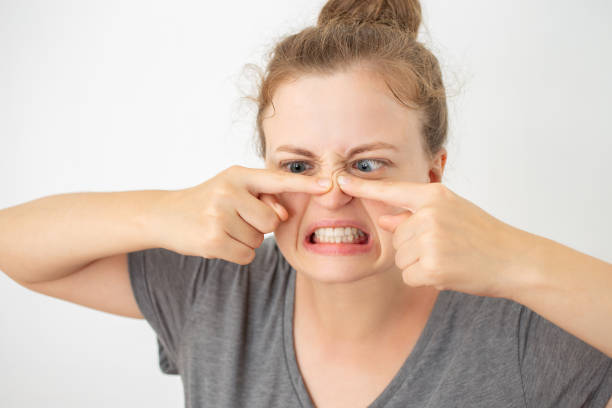
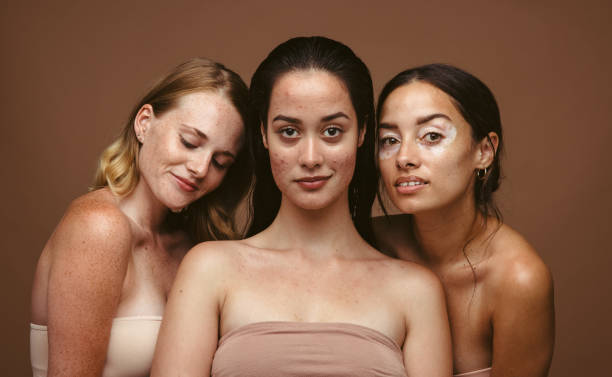
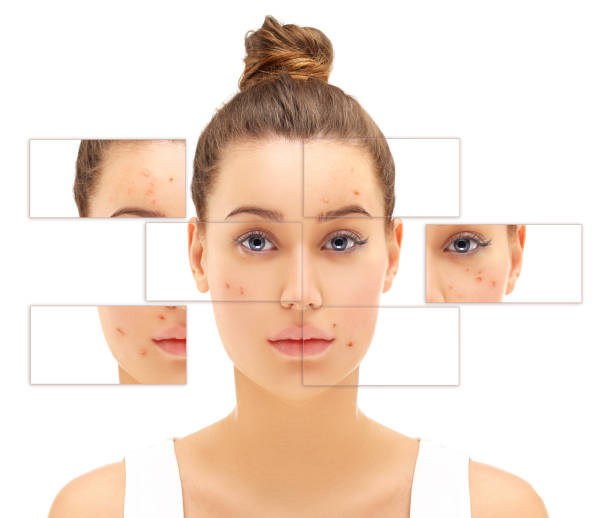
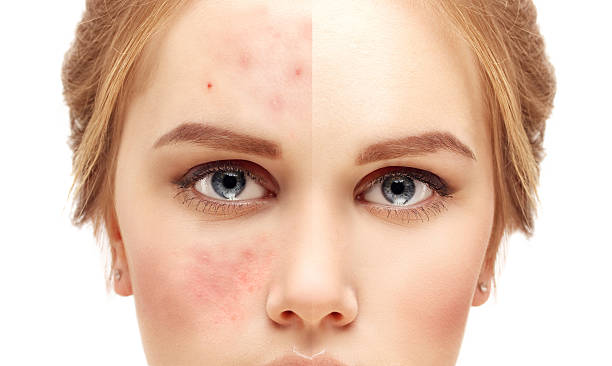
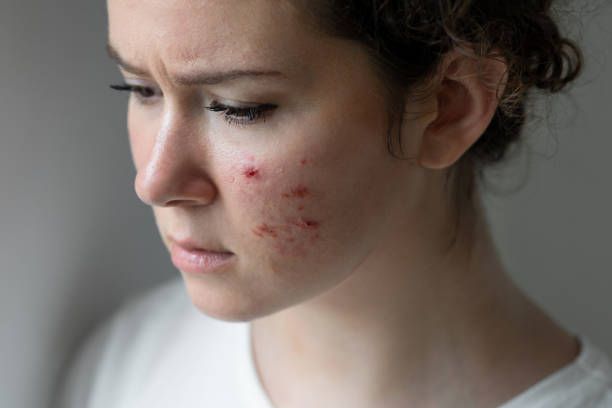
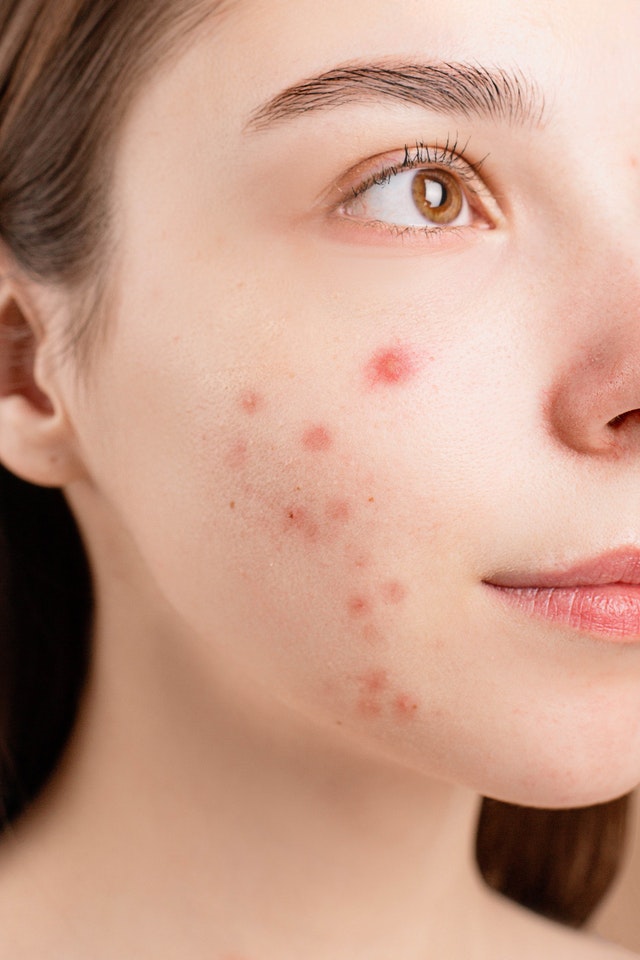
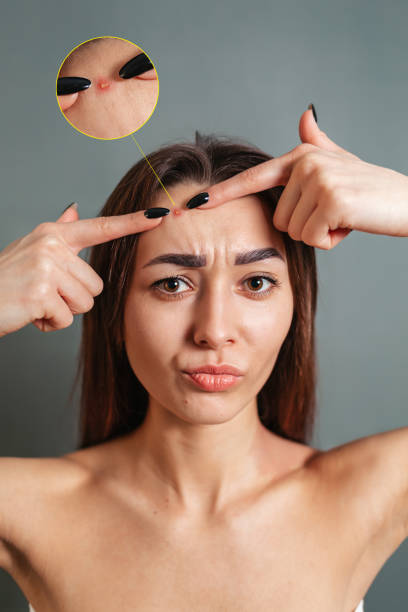
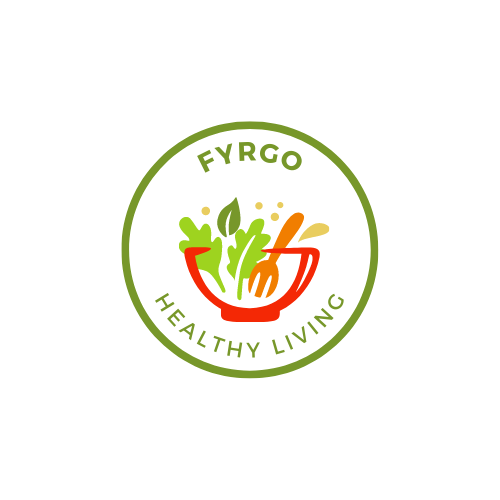
 RSS Feed
RSS Feed